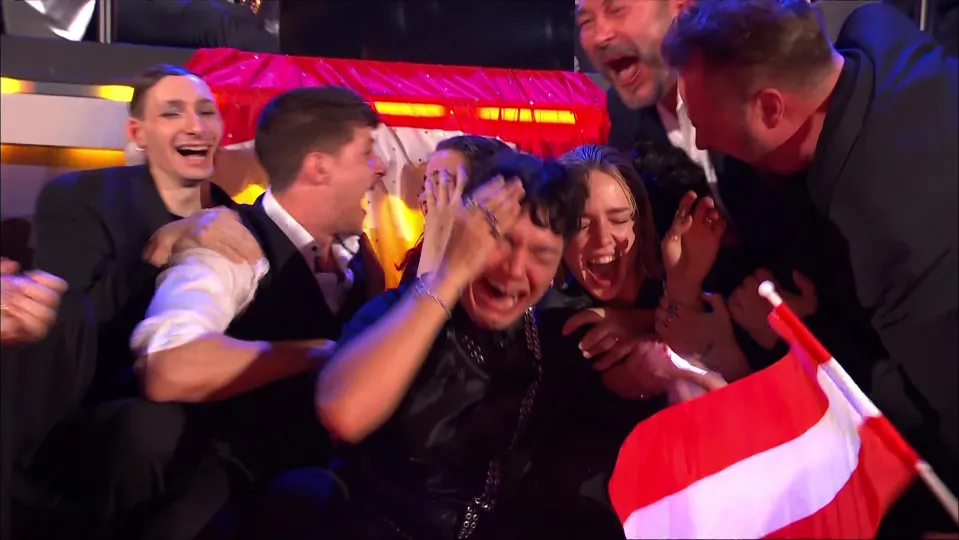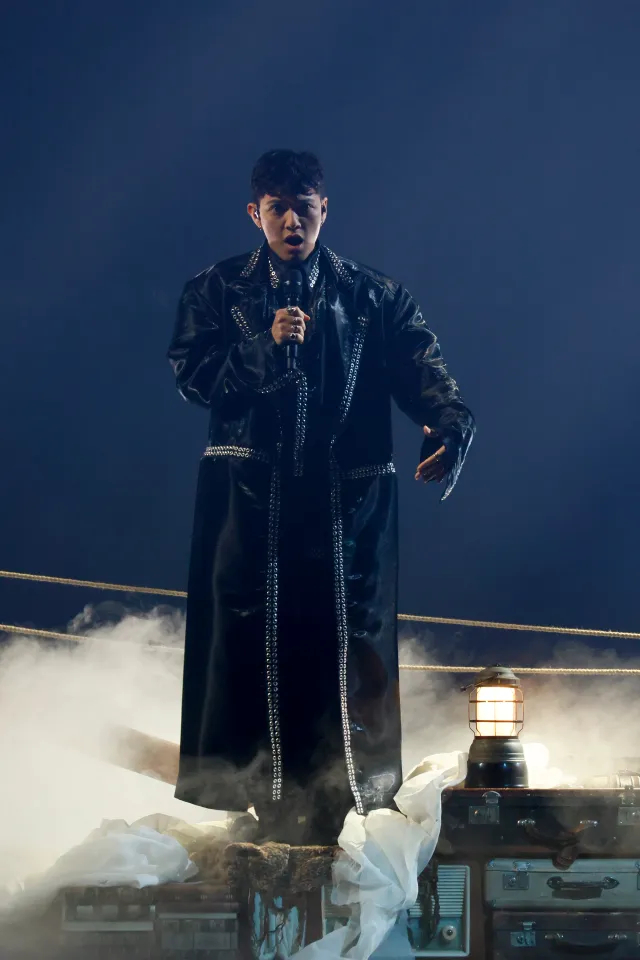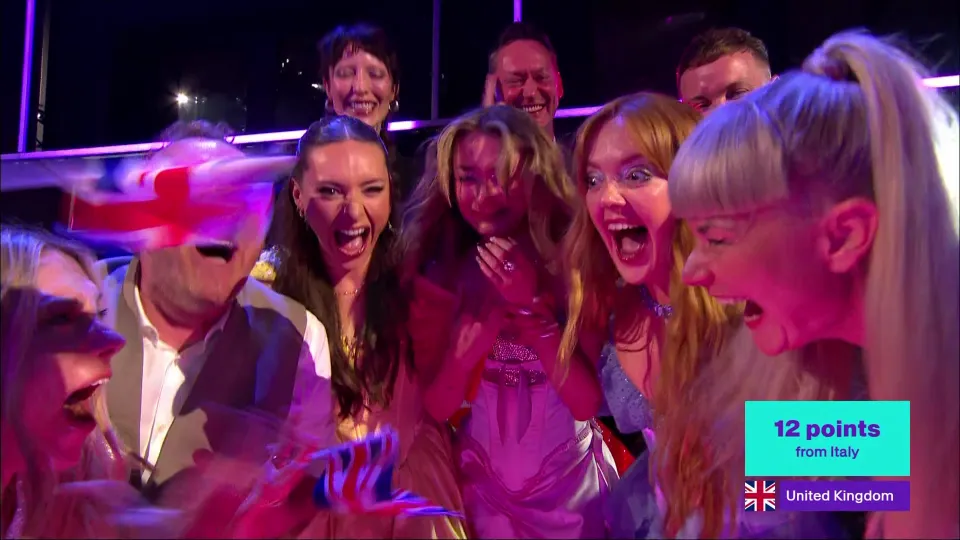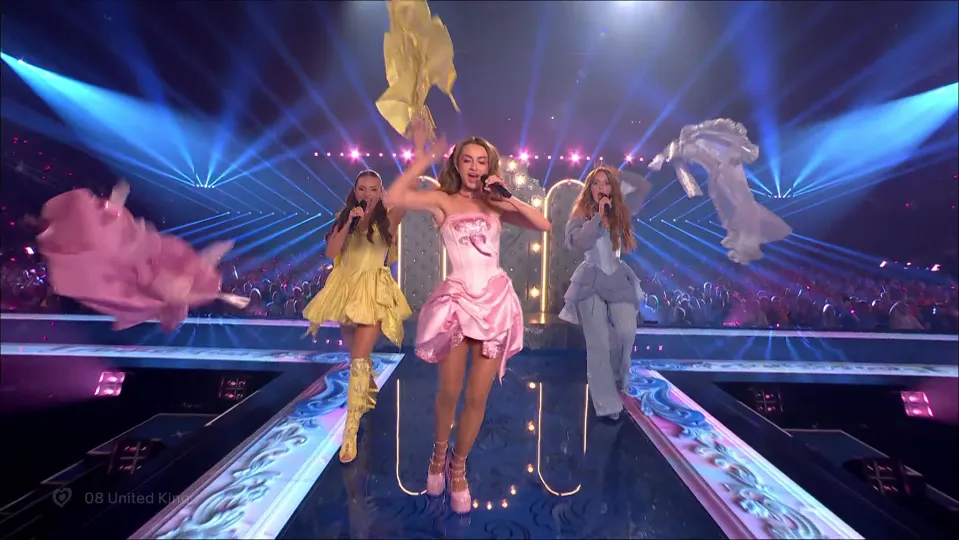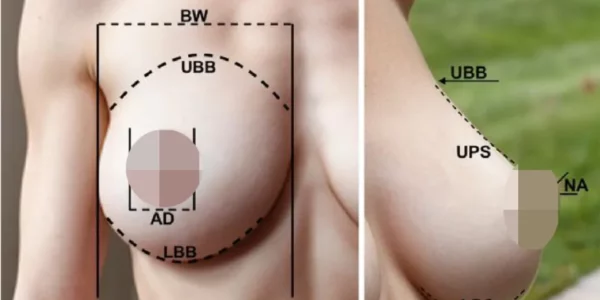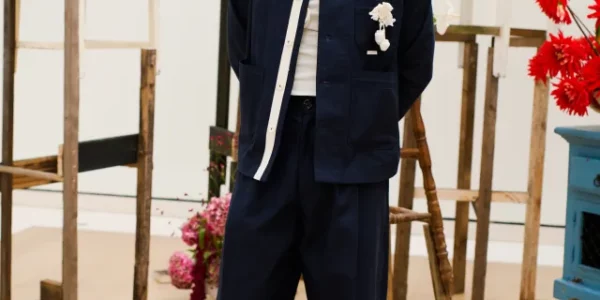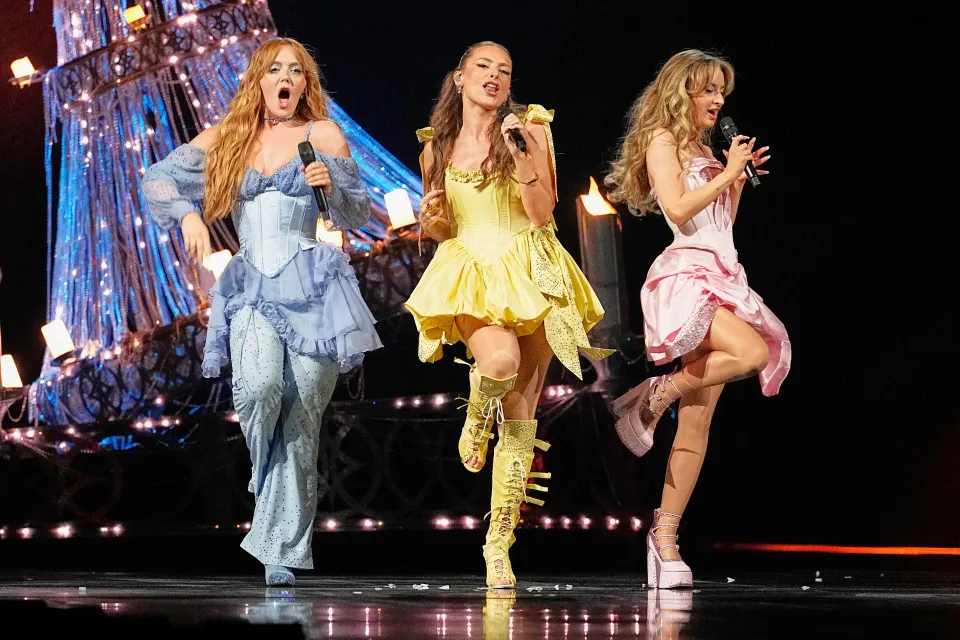
Remember Monday in crushing Eurovision defeat as final position revealed after 2025 winner announced
The United Kingdom once again faced disappointment at the Eurovision Song Contest 2025, with girl group Remember Monday finishing in 19th place after delivering a high-energy performance of their song What The Hell Just Happened? Despite the group receiving a respectable 88 points from the professional juries, the public vote awarded them zero points, a harsh verdict from viewers across Europe.
Meanwhile, Austria’s entrant, operatic singer JJ, triumphed with his emotionally charged ballad Wasted Love, marking Austria’s third-ever victory at Eurovision and their first since 2014. This article explores the UK’s disappointing performance, the reasons behind it, Austria’s winning entry, and the broader implications of the 2025 contest.
The UK’s Eurovision 2025 Entry: Remember Monday
Background of Remember Monday
Remember Monday is a British girl group composed of Lauren Byrne, Holly-Anne Hull, and Charlotte Steele. Their entry into Eurovision was notable as they were the first girl group to represent the UK since 1999. This was a significant moment for the British delegation, as girl groups have historically done well in Eurovision, but the UK has struggled to find consistent success in recent decades.
Their song, What The Hell Just Happened?, was a pop-rock anthem with catchy hooks and strong vocal performances. The track was intended to appeal to both younger audiences and long-time Eurovision fans, blending contemporary sound with a vibrant stage presence.
Performance and Staging
The trio performed confidently on the stage in Basel, Switzerland, showcasing impressive choreography and vocal harmonies. However, despite their energetic delivery and crowd engagement, the staging and song failed to resonate widely with the viewing public.
The contrast between jury and televoter support was stark: while professional juries awarded Remember Monday 88 points, the public vote gave them nothing. This gulf highlighted the disconnect between music industry professionals and viewers, a recurring theme for the UK in recent contests.
Eurovision 2025 Results: UK Finishes 19th
Breakdown of Points
- Jury Vote: 88 points
- Public Vote: 0 points
- Total: 88 points
- Final Position: 19th out of 26
The highest score awarded to Remember Monday came from Italy, which gave them 12 points, the maximum a country can allocate to a single contestant. Italy’s results were notably presented by a puppet mouse, a light-hearted moment in an otherwise tense competition.
For context, last year’s UK entry, Olly Alexander with the song Dizzy, finished 18th with a total of 46 points — almost half of what Remember Monday received. While this represents an improvement in points, the public’s lack of support remains concerning for the UK.
Austria’s Victory: JJ’s Triumphant Moment
Who is JJ?
Johannes Pietsch, known professionally as JJ, is a Vienna-born Austrian-Filipino opera singer who combines classical training with modern pop sensibilities. A student at the Music and Art Private University of Vienna (MUK), JJ’s unique style brought fresh energy to the Eurovision stage.
His winning song, Wasted Love, is a powerful operatic ballad portraying the emotional turmoil of a failed relationship, symbolized by the metaphor of a disastrous boat trip.
Staging and Performance
JJ’s performance featured striking black and white visuals, emphasizing the song’s emotional weight. His vocal prowess and stage presence captivated juries and viewers alike, setting him apart from other contestants with more conventional pop entries.
The Impact of the Win
Austria’s victory marks their third win in Eurovision history, following Udo Juergens in 1966 and Conchita Wurst’s iconic 2014 win. JJ’s success signals a growing appreciation for more musically sophisticated and genre-blending entries in the contest.
Other Notable Acts and Incidents
Israel’s Yuval Raphael
Israeli singer Yuval Raphael performed New Day Will Rise, a heartfelt song that elicited mixed reactions during the live show. Raphael, aged 24, is an October 7 survivor, a tragic reference to recent events in Israel, adding poignant weight to her performance.
BBC commentator Graham Norton noted a “mixed response” with both cheers and boos from the arena audience, reflecting the complex political and emotional backdrop surrounding Israel’s participation.
On-Stage Incident
The contest was briefly disrupted when two individuals attempted to rush the stage during Raphael’s performance. A crew member was hit with paint, but thankfully no injuries were reported. Security swiftly intervened, and the individuals were detained and later released by police pending possible charges.
The Voting System and Final Tally
How Voting Works
Eurovision voting combines points from national juries (music industry professionals from each participating country) and televotes from viewers. Each country’s jury and public each award points from 1 to 12, with 12 points being the highest.
The combined total determines each country’s final score. This year, the rest of the world outside the competing countries also participated in a global poll, which was counted equivalently to a national vote.
The UK’s Jury Vote Announcement
Traditionally, the UK’s national jury votes are announced by a well-known personality. This year, singer Sophie Ellis-Bextor stepped in to deliver the results after Doctor Who actor Ncuti Gatwa had to withdraw due to unforeseen circumstances.
Analysis: Why Did the UK Struggle?
Disconnect Between Jury and Public
Remember Monday’s jury points demonstrated respect from music professionals for their vocal skill and song quality. However, their failure to attract public votes points to a lack of wider audience connection.
The UK’s Eurovision entries in recent years have often been criticized for being out of touch with the contemporary tastes of the European public or for failing to stand out in a crowded field.
Song Choice and Performance
While What The Hell Just Happened? was energetic and well performed, it lacked a distinctive hook or narrative that might have captivated a diverse audience. The staging, though polished, did not innovate or create a memorable spectacle.
In contrast, successful Eurovision acts typically blend strong visuals, emotional storytelling, and distinctive music styles to capture broad attention.
Eurovision’s Changing Landscape
Eurovision has evolved into a contest where diversity in music genres, visual artistry, and cultural representation increasingly influence outcomes. The UK’s historical reliance on traditional pop formats may limit its competitiveness unless it embraces broader musical experimentation.
The Broader Context: Eurovision’s Significance in 2025
A Platform Beyond Music
Eurovision 2025 was more than a musical contest — it reflected the cultural and political tensions across Europe and beyond. Acts like Israel’s Yuval Raphael brought contemporary socio-political narratives to the stage, demonstrating how Eurovision is a cultural touchstone as much as a competition.
Austria’s Victory and Future Trends
JJ’s win showcases a trend toward genre fusion, blending opera with modern pop and theatrical staging. This could signal a shift in future contests where classical elements and emotional depth become more prevalent, challenging countries to innovate musically.
Conclusion: What Lies Ahead for the UK?
Remember Monday’s 19th place finish, though disappointing, may serve as a valuable learning experience for the UK’s Eurovision strategy. Rebuilding trust with the public and fostering innovative entries that balance jury respect with mass appeal are essential.
The Eurovision Song Contest remains a dynamic and evolving platform, rewarding boldness, creativity, and emotional connection. For the UK, regaining its former Eurovision stature will require a fresh approach, perhaps taking inspiration from winners like JJ to push musical boundaries.
Additional Reflections
The Eurovision Song Contest continues to captivate millions worldwide, with over 160 million viewers tuning in to the 2025 grand final. The UK’s journey with Remember Monday, Austria’s triumph with JJ, and the various narratives and incidents from the contest highlight Eurovision’s power as a mirror of contemporary European culture, politics, and musical trends.
For the UK, Eurovision 2025 is both a setback and an opportunity to reinvent itself on one of the world’s largest musical stages.
If you would like, I can also provide a more detailed breakdown of voting results, history of the UK’s Eurovision performances, or a profile of Remember Monday’s members and their careers.
Would you like me to expand on any of these topics?



